Dan Nelson is practice administrator with Desert Ridge Family Physicians of Phoenix, AZ. He recently testified before the HIT Standards Committee’s Implementation Workgroup.
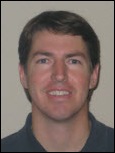
Give me some background on the practice.
The practice was started about 6½ years ago. When we opened, we started with NextGen in-house. We host all our own servers. That’s all internal. We retained control of all of that.
Because we started six years ago with NextGen, we really had a substantial head start on all of our infrastructure, and I guess in getting ready for Meaningful Use. I really had no idea that this was coming. Once it was all laid out, we found that we were really well situated for it.
You’re a six-physician family practice, correct?
That’s correct.
You’re using NextGen for the practice management application as well as the EHR?
That’s right. We also have NextGen’s Internet portal as well for patient communication.
Tell me about the experience of testifying for the HIT Standards Committee. How were you selected and what were some of the overriding messages you heard from other presenters?
I have no idea still how we were selected. We’ve been certainly involved with NextGen and a team of user groups. Because we’re a rich user, we talk with them to some extent. We’re very involved with our local Regional Extension Center, and because of how well-situated we are, we’ve done the best that we can to help them. We also had previous relationships with members within the REC, so that helped. Recently, just a couple of months back, when the ONC had come in town, they had brought back some members of the ONC to come and visit us.
Which one of those was directly responsible or just added to us getting selected, I have no idea. When we got the call that we were invited to participate, it was really a shock to us. It was really interesting to participate in the panel.
I think the biggest thing that I took away was just how much they’ve actually accomplished in a very short amount of time. In my eyes, the program has been extremely successful — in less than in two short years, to bring electronic health records to the forefront like this program has. I think it’s a huge success.
When you watch the news, you see all the political divisions and people fighting, but I was really impressed with the committee. It was a big group of people all working for a common goal. Certainly there’s some different viewpoints and whatnot, but I was really impressed with the work ethic that everybody on the committee had.
In terms of the feedback that presenters gave the committee, were there any big issues or problems that were consistently mentioned or was it a variety of issues?
There was a whole host of issues. There were some commonality in viewpoints. Certainly I think there were a lot of little details that can use some fine-tuning, maybe some better communication coming from the ONC on interpretation of rules. But I certainly understand that each one of those interpretations was a single case, and so it’s going to be very difficult to make all those determinations. I certainly understand ONC having difficulty answering all of these questions.
On Day Two, there was even a little bit of pushback on electronic health records to begin with. That was fascinating to witness.
I read over the written testimony that you submitted. One of your comments was that the technical bar to meet Stage 1 of Meaningful Use is quite low for most of the vendors, but you think many of the vendors may have difficulty meeting Stage 2 and 3 requirements. If that’s the case, do you predict a shakeout of EHR vendors or do you see a lowering of that bar?
It’s difficult to say. I can only see a very low level from my position of a small practice administrator.
There’s something like 250 EHRs that have been certified by one body or another. That number astounds me. In looking through that list of the 250, I certainly see some EHRs that I don’t think should be on there. I don’t think they would be even be considered an EHR by some people.
I would caution any practice out there that’s in EHRs to not go with the cheapest one or the very basic one just as an attempt to get some Meaningful Use dollars. In my mind, that’s not what this program is for.
I’ve heard some practices made statements that the incentive won’t even cover the entire cost of the EHR. In my mind, I would be shocked if it did. I don’t think that it’s a program to make money off the government. I mean, for the program to improve your medical practices and help lessen the blow for that transition, but certainly it’s not a way to make extra money. I would caution any medical practice out there when making the choice, make the right choice for the long term and choose a quality EHR.
My biggest fear is that if these — I’ll call them under-qualified EHRs — are successful, and there’s a large market that they hold, then it will be very difficult to have serious Stage 2 or 3 criteria. I think that’s where we’re really going to start seeing the savings and the efficiencies and the quality improvements from sharing information on most medical practices. That’s what I’m really looking forward to in all of this. If at the end of the three stages all we have are a bunch of islands of electronic practices, I don’t think we’ve gotten our money’s worth. But if at the end we have an interconnected medical community, then I think that this will be a worthwhile program.
Tell me some of the challenges that you’ve experienced communicating with other providers. For example, establishing interfaces with the hospital and using external portals with insurance carriers and others.
I’m really not a fan of portals. We connect to probably 20 different portals on a daily basis for one reason or another. Most of those are health insurance companies. There are also labs, radiology, hospitals. For every single one of them, each user is supposed to have their own login name and password, but of course you don’t want to duplicate any of your login names or passwords across multiple portals. Just the management of those passwords is a nightmare. Besides that, it’s not part of their flow. When they’re seeing a patient and then they have to go and log on to some portal, it takes them out of what they’re doing.
Our goal is to have everything embedded within our EMR system. To do that means we need to be interfaced in one way or another. Up to this point, that’s been a rather difficult thing to do, but I think that has more to do with the state of information exchange than it does interfacing difficulties. The problem right now is in order to interface, it’s a single practice interfacing to a single carrier, and that carrier has to interface with every single practice. When you want to interface with a second carrier, that’s a whole other project, and they have to build a thousand interfaces.
So once we get to the point that exchanges are realistic, we should be able to connect to the exchange, and then by extension, we connect it to many different sources of information. But that’s what we’re looking forward to. In Arizona, our exchange is not ready for that yet.
How are you doing data exchange with your hospital?
With our hospital, we connect to them through a portal. I guess it just has all the same problems that portals do. We’re not proactively notified that we need to be logging into the portal. When we get to the portal, we don’t really have an expectation of what we’re going to find. We log in and then we find out what’s there. They are working always to get us interfaced into more of an exchange, but there’s just a lot of work to be done.
You had mentioned in your testimony the need for discrete data and that your hospital vendor was surprised that a huge data dump of information was not a sufficient solution. Is that still an issue for the practice?
Oh, absolutely. When talking about discrete data, my first worry is there’s going to be a bunch of EHRs that really aren’t capable of handling discrete data. They will just have big, huge text blobs of a bunch of information the physician then has to weed through. Or, it could be exchanging of large PDFs of information instead of, say, lab information, instead of having that lab as discrete data that could be properly imported.
My hope is that the EHRs are capable of using discrete data and then the exchanges can be capable of exchanging it that way. That remains to be seen. Certainly the technical complexity of discrete data is going to be far higher than just exchanging blobs and PDFs, but then the benefit of the discrete data will be the usability. If that information could be imported by our EHR and put into proper categories and spaces, then it’s very useful for our physicians. Otherwise, we get a whole bunch of documents that we have to read and it’s not usable in a full sense.
Is your hospital working to make the process better or are their hands tied due to the vendor?
I’d say it remains to be seen. I don’t know enough to know which way it will end up being. Actually, I think that’s a desire to make sure that their exchange is useful, but it’s difficult as well. I have hopes that they’ll do it the right way. But we really are a ways away from these types of things. I think they’re still all in the planning stages and they’re not rolling out an exchange yet.
Shifting gears a bit, why do you think it’s so much harder for smaller practices to adopt EHR?
We have — and I say “we” because I have many of the same problems, even though we’re a couple of steps ahead– but we still have all these same problems. We have too few people, we have a small practice environment, and you need to run a lean organization. We have too little time. Especially in primary care, there never seems to be enough time, and certainly too little money.
I think the Meaningful Use program helps with that end. I think the Regional Extension Centers help with too few resources and too little time. They really can be a great asset in assisting practices and feeding them the right way and making sure we don’t need to learn everything ourselves. We have very useful guides.
Another thing for our small practice is that there’s probably too little expertise. We’re getting into some very complex areas of IT and vendor selection and things of that sort, and that’s not always an expertise that a small practice has in-house. All those things add up. It’s difficult for the small practice environment to tackle a project this large.
Are you seeing in your area a lot of consolidation with practices?
Yes, we are. There’s absolutely a lot of acquisition going on in our area.
I trust that’s something that your practice is trying to avoid at this point?
I don’t think that I’d word it that way. It’s something that we’re not interested in. I don’t believe it’s the right move for healthcare. I don’t think that it will improve quality. I think that it increases complacency and I think that it’ll lessen innovation with all that acquisition.
You noted in the testimony that NextGen is a top-tier EHR. How do you respond to practices that say they simply can’t afford an EHR like NextGen, so they select one of the lower-end options?
I certainly don’t think that one size fits all. I wouldn’t try to necessarily talk a practice into going with NextGen or to spend a lot of money to get the very best. They have to do what’s right for them, what’s right for their technical abilities, what’s right for their flow.
I would show a practice what we’ve been able to accomplish with NextGen and try to make the case that by spending some extra money, you can get these efficiencies and these capabilities in return. That may or may not be worth it to them.
When we started off, we were a brand new practice with no patients and made the decision to with NextGen. We’ve never regretted it. We’ve been able to do some pretty amazing things with NextGen. That’s not to say that every practice could do what we’ve done or that any practice would want to do what we’ve done. They have to make a decision for what’s right for them.
I would just make sure that they are paying attention to the direction where healthcare is going. Practices being interconnected to each other and to exchanges. Make sure they have a system that won’t hinder their abilities to do so.
Any other thoughts on your testimony or EHR that you’d like to add?
Maybe only that I feel very fortunate that I’ve been able to participate with the committee hearings and that I’m really optimistic about the future seeing the great work that’s been done, how much they’ve accomplished, and how successful they’ve been at bringing a focus to electronic health records for the medical industry. I think it’s a huge jump start to where we want to take healthcare.

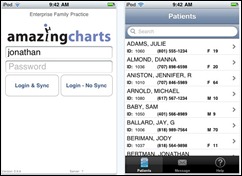
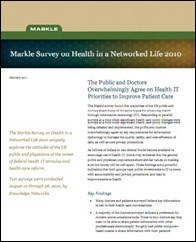

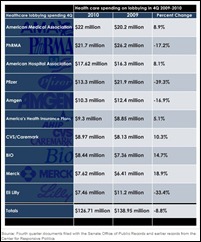

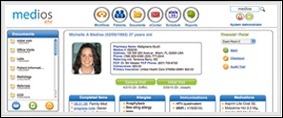

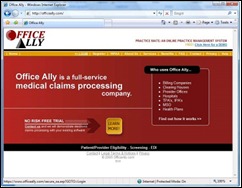


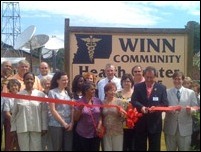
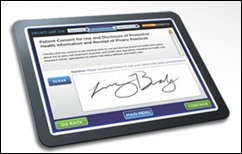

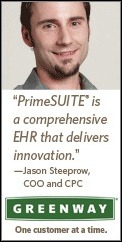
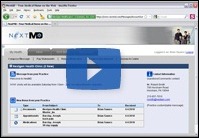


Re: Walmart Health: Just had a great dental visit this morning, which was preceded by helpful reminders from Epic, and…